A muscle relaxer is a supplement that can reduce tension and soreness in your muscles, leading to relief from tense, tight, and painful muscles, whether they are in your neck, back, arms, or legs.
A muscle relaxer can also help with menstrual cramps and neurological conditions that cause muscle spasms or tension, and may even help with fibromyalgia.
There are many herbal and nutritional supplements that claim to relax your muscles and reduce tension, but which ones work?
We’ve taken a look at your options and ranked the ten most effective muscle relaxers.
Research
Rankings
1. Vitamonk Relaxeril
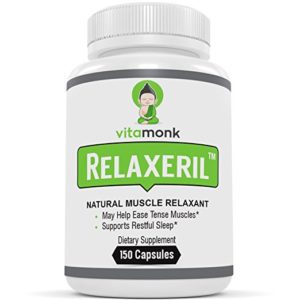
Vitamonk Relaxeril has several key ingredients at high concentrations that stand a good chance of relieving muscle tension and pain.
The supplement delivers valerian root, passion flower, and chamomile as its herbal ingredients, but also includes magnesium and calcium at a solid dose to shore up your levels of these minerals, which are critical for proper muscle function.
Magnesium in particular is linked to preventing problems related to muscular tightness. Thanks to the high doses of both mineral and herbal ingredients, it’s our top pick for muscle relaxers.
2. Salt Wrap Mag R&R
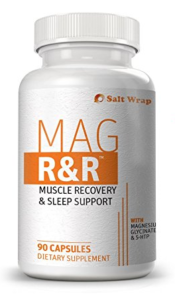
Salt Wrap Mag R&R uses a combined strategy of supplying magnesium, vitamin B6, and a blend of herbal and supplemental ingredients to get your body to wind down, relax, and release muscular tension. The high magnesium dose will directly aid muscular relaxation, while 5-HTP and GABA help your brain relax, recharge, and unwind.
This supplement is best taken at night, given that it contains melatonin that will help you fall asleep—a very helpful addition given that tight and painful muscles often prevent you from being able to go to sleep.
3. Sombra Warm Therapy
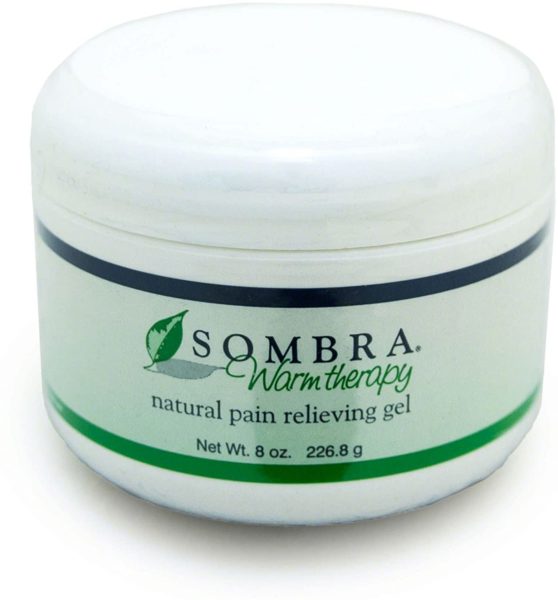
Sombra Warm Therapy is the best gel-based muscle relaxer on the market. It uses menthol and camphor, two time-tested herbal extracts for soothing muscle pain and soreness.
On top of that, it fights inflammation with aloe vera and green tea extract. If you need targeted muscle relaxing effects, it’s your best option.
4. BoostCeuticals D-Ribose
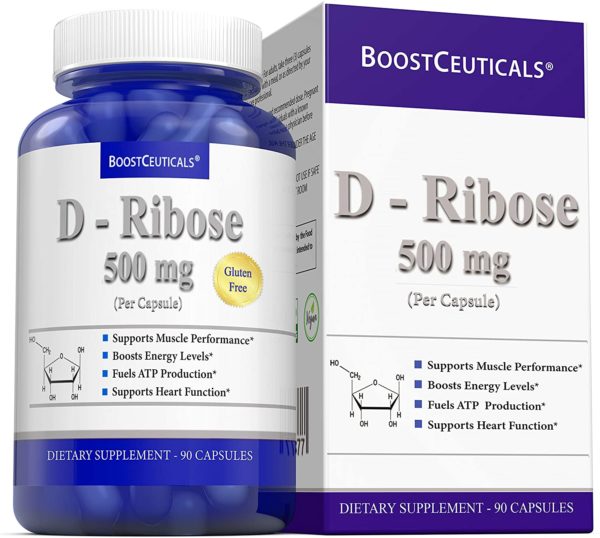
BoostCeuticals goes all-in on the simple biological compound D-ribose, which has been found in some studies to substantially improve symptoms of chronic fatigue.
By improving the condition of muscles and decreasing muscular fatigue levels, this D-ribose supplement promises to improve muscle pain and reduce muscular tension.
Given that it’s a ubiquitous biological compound that your body naturally synthesizes, the potential payoff is high and the risks are low, making this a great option to try.
5. Crystal Star Muscle Relax
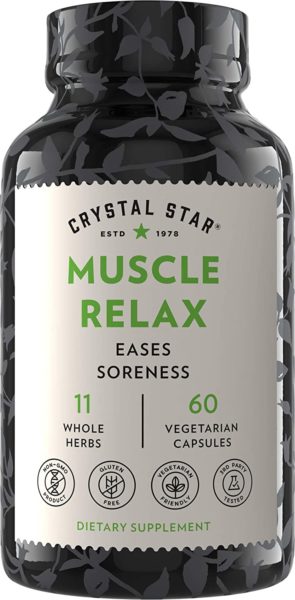
Crystal Star Muscle Relax is the way to go if you need a high dose of herbal muscle relaxers. It has nearly a dozen different herbal ingredients at high doses, and promises to relieve muscular tension and pain. It’s a good choice if the usual herbal and mineral combinations aren’t working for you.
6. Oregon’s Wild Harvest Muscle Relax
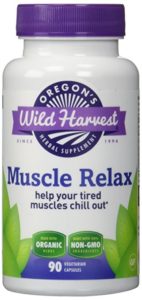
Oregon’s Wild Harvest makes a muscle relaxer comprised of a proprietary blend of the extracts of valerian root, skullcap tops, and hops, which are all herbal compounds reputed to help muscles relax, release tension, and feel less sore.
While many users attest to the efficacy of this supplement, these ingredients aren’t the most widely studied when it comes to their effects on your musculoskeletal system, so only try this if other muscle relaxers haven’t been working for you.
7. Nobi Nutrition Magnesium Complex Premium
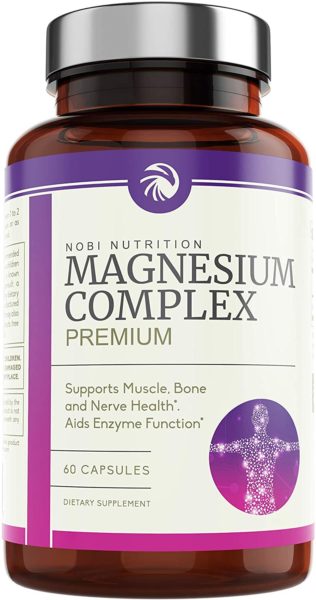
Nobi Nutrition Magnesium Complex is a simple but popular formulation that focuses on delivering magnesium to muscles. Because of its focus on magnesium, it may be worth a look for people who are suffering from fibromyalgia: some research has identified magnesium supplements as a potentially effective way to ameliorate symptoms from fibromyalgia.
8. Penetrex Pain Relief Roll On
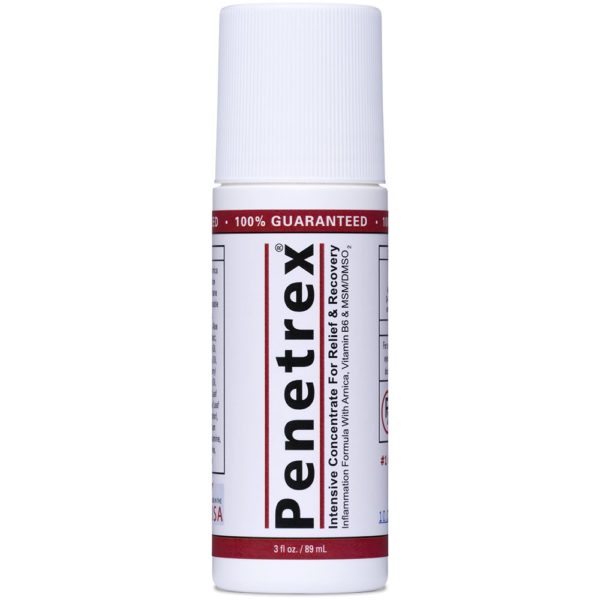
Part joint supplement, part muscle relaxer, Penetrex Pain Relief Roll On is a topical product that’s popular both for back, neck, and muscle pain as well as joint pain associated with arthritis.
It has a combination of ingredients for combating both joint and muscle pain that many users find particularly effective. It’s not so great for larger areas of the body, or deeper muscles that are tight and sore, but for niche applications it’s great to have at hand.
9. Hyalogic HylaRub
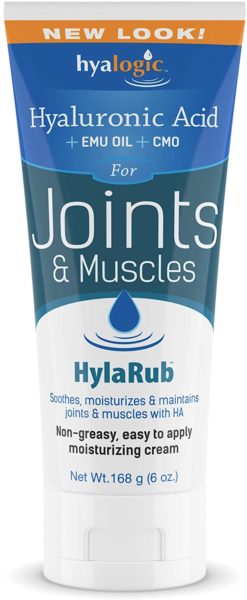
HylaRub is a cream-based muscle relaxer that will work best on the back and neck muscles. With hyaluronic acid to aid joint and disc function, it is likely to help with muscular tension that is caused by movement issues in the back and neck.
However, given that its only direct muscle relaxer is peppermint oil, it’s not likely to be very effective at muscular tension or pain in the rest of the body, and may not even help in the case of back and neck pain not directly linked to inflammation or degeneration in the discs and vertebrae joints.
10. LifeSeasons – Relieve-R
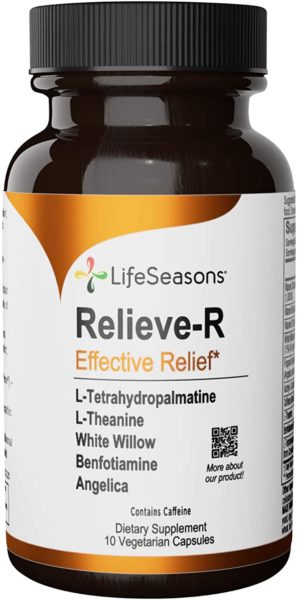
LifeSeasons – Relieve-R uses a mixture of B vitamins, caffeine, theanine, and willow bark extract in an attempt to block pain and ease muscular tension.
However, the individual response of users is more variable with this supplement, and the caffeine content means it’s not a good supplement to take in the evening. While it can be good for supplements to take unconventional approaches, it doesn’t look like this one works for everyone.
Category winners
Best muscle relaxer overall: VitaMonk Relaxeril
VitaMonk comes out on top overall thanks to its well-curated blend of magnesium for muscle cramps and soreness, valerian root for stress and anxiety, and passion flower plus chamomile extract for whole-body relaxation. For all-around muscle relaxation, VitaMonk’s blend can’t be beat.
Best muscle relaxer for soreness: VitaMonk Relaxeril
If tough workouts are leaving you sore and stiff at the end of the day, VitaMonk Relaxeril is the way to go. Its high magnesium content helps battle muscle soreness, while its combination of herbal ingredients works to decrease muscle tension, further reducing soreness.
Best muscle relaxer for back pain: Sombra Warm Therapy
Sombra Warm Therapy is a gel-based muscle relaxer that uses menthol and camphor, herbal extracts long used by old-school athletes to soothe muscle pain. It’s our pick for back pain because the gel format means you can apply this soothing balm directly
Best muscle relaxer for leg cramps: Salt Wrap Mag R&R
Salt Wrap focuses on heavy-hitting compounds that release muscle cramps, like magnesium and vitamin B6. On top of that, it includes GABA and melatonin, which help put you into a deeper sleep at night to avoid tossing and turning as a result of leg cramping or restless legs.
Best muscle relaxer for headaches: VitaMonk Relaxeril
Got neck tension that’s causing headaches? Relaxeril’s valerian root and chamomile extracts can help soothe tension headaches, while the magnesium and calcium help loosen up tense muscles in your neck. It’s a great, stimulant-free supplement for treating headaches.
Best muscle relaxer gel: Sombra Warm Therapy
For muscle tightness or soreness that’s concentrated in a particular area, you want a gel-form muscle relaxer. Sombra Warm Therapy is the best option on the market—it uses camphor and menthol to soothe sore and tight muscles, plus provides aloe vera and green tea extract for anti-inflammatory effects.
Who should buy a muscle relaxer?
Muscle relaxers are supplements that contain a combination of ingredients designed to loosen up sore, tight, or painful muscles. Often, these supplements are herbal compounds and molecules that modify neurotransmitters in your central nervous system, like valerian root, 5-HTP, GABA, or theanine.
Some muscle relaxers use high doses of vitamin B12 or magnesium to modulate both your muscle tension and your nervous system’s sensitivity to pain. Still others are focused specifically on relieving back and joint pain using hyaluronic acid or other ingredients you might see in a joint supplement.
Some of these joint and back-specific muscle relaxers are actually topical creams or gels as opposed to tablets or capsules. Despite having a pretty narrow area of focus, muscle relaxers are rather broad in the scope of their ingredients, so you may have to try a few different products before you find something that works.
Muscle relaxers might be helpful if you have back or neck tightness and soreness, old muscle strains or injuries that give you persistent trouble, or just want something to loosen up your body after a hard session at the gym or a long day of manual labor.
Muscle relaxers are also popular among people who have vague and difficult to diagnose muscle or joint pain, such as the kinds of pain associated with fibromyalgia and sometimes chronic fatigue syndrome.
Unlike something such as a BCAA supplement, a muscle relaxer isn’t necessarily targeting just one specific physiological pathway; just as there are many causes of tight or sore muscles, there are also potentially many different ways to alleviate muscle soreness and tightness.
How we ranked
Because of the wide diversity of supplemental strategies for muscle relaxation, we had to expand our usual search criteria.
We first did a cursory evaluation of all muscle relaxing supplements on the market, including both oral supplements (capsules, tablets, or liquid form supplements) and topical supplements (balms, creams, and gels).
We eliminated from consideration anything that used only one ingredient: while some individual compounds, like GABA or chamomile or certain edible flowers, can be effective muscle relaxers, we were focused on multi-ingredient formulations as these may stand a better chance of being effective. Moreover, we typically have separate rankings for individual compounds.
We avoid anything that had a homeopathic formulation, as the scientific research just does not support the efficacy of homeopathic preparations. While few muscle relaxer supplements have been specifically tested in research studies, there is often information from laboratory or clinical research on the effects of their individual ingredients.
Because of this, we prioritized supplements that used well-studied compounds with known benefits for muscle soreness, tightness, or pain. That meant ingredients like magnesium, valerian root, chamomile, GABA, hyaluronic acid, or 5-HTP. Supplements with fewer ingredients with plausible biochemical benefits were rated lower or dropped completely.
Since many people take muscle relaxers in the evening, either to wind down at the end of a long day or specifically to avoid back and neck pain at night, we also looked for supplements that included general relaxation and sleep aid compounds like melatonin. Since not everyone wants the effects of sleep aid type compounds, we also made sure to include muscle relaxers in our final rankings that did not contain any sedative-like compounds and can be taken all day.
We also made sure to include a balance of oral and topical muscle relaxers. While topical products tend to be better than oral products for specific painful areas, like your neck or shoulder, a capsule is better for generalized soreness, or stiffness and pain distributed across multiple muscles and joints.
Finally, we considered purity and supplement formulation. High-scoring products were those that had few or no extraneous ingredients and a clean, minimal supplement design.
Products that scored lower or were eliminated entirely had binders, stabilizers, and other fillers that dilute the quality of the active ingredients. After considering all of the above criteria and sorting products by overall quality, we had our final rankings of the top muscle relaxers on the market.
Benefits
Muscle relaxer supplements can help relieve muscular tension, reduce pain, and soothe tense and irritated muscles.
They are useful if you have cramps, tension, or widespread muscular sensitivity caused by conditions like fibromyalgia or chronic fatigue syndrome.
There are several vitamin, mineral, herbal, and biological compounds that can be used to relax muscles, release tension, and reduce pain.
If your muscle tightness is due to fibromyalgia, a muscle relaxer with D-ribose could relax your muscles and relieve your pain. D-ribose is just a metabolized carbohydrate, but it appears to have powerful muscle relaxant properties.
A clinical trial published in the Journal of Alternative and Complementary Medicine by two researchers in Texas tested the effects of D-ribose on fibromyalgia related muscular complaints (1). Citing research that found that D-ribose can improve energy content in both skeletal muscle and heart muscle, the researchers set out to test whether this effect might lessen the muscular complaints of people with fibromyalgia.
A group of 41 patients with fibromyalgia were given a supplement with five grams of D-ribose to take on a daily basis, and the patients were tracked for eight weeks and filled out an evaluation of their complaints both before and after the supplemental intervention.
The researchers found that the D-ribose supplement was able to reduce muscular pain, increase energy, and boost overall well-being. Unfortunately, since this was only a pilot study, there was no control group, so it’s hard to rule out the placebo effect when evaluating these improvements.
Still, it’s a promising finding, and suggests that anyone looking for muscle relaxers because of fibromyalgia-related pain and tightness should consider adding D-ribose to their supplemental routine.
Chamomile can reduce inflammation and relax a tense and sore muscle. The chamomile plant, known primarily for its relaxation and sleep-inducing tea, can also act as a strong anti-inflammatory to cut down on inflammation and irritation.
For this reason, you’ll find it in many muscle relaxer supplements. According to a 2009 scientific paper in the journal Life Sciences published by researchers at Case Western University, chamomile is not only a strong anti-inflammatory, but has many of the same properties as analgesic anti-inflammatories like ibuprofen (Advil) and naproxen (Aleve) (2).
Using several experiments on cell cultures, the authors demonstrated that chamomile functions as a selective inhibitor of an enzyme called COX-2, which is an essential part of inflammation.
This enzyme is one in a chain of cellular reactions that create and promote inflammation at the cellular level, which is why COX-2 inhibitors, like naproxen and ibuprofen, are so commonly prescribed for muscle tightness and pain. But these traditional COX-2 inhibitors can be prone to cause side effects and are hard on your gastrointestinal tract.
This is why the Case Western researchers were so interested in chamomile, because it has the potential to significantly cut down on muscular pain and tightness without the negative side effects of traditional anti-inflammatory drugs.
A muscle relaxer with valerian root can reduce muscle tension and treat menstrual cramps and menstrual pain. Valerian root is an herbal preparation that has been used for centuries to treat muscular pain. New scientific research is now supporting its use as a muscle relaxer.
One study, published in the International Journal of Gynecology and Obstetrics, examined valerian root as a treatment for menstrual pain and cramping (3).
In the trial, 100 women were randomly assigned to either a valerian root group or a placebo group. The researchers then tracked the subjects for three consecutive days on two consecutive menstrual cycles.
They found that the valerian root significantly reduced menstrual pain compared to the placebo, thanks to its ability to reduce muscle cramping and spasming.
Including magnesium in a muscle relaxer can prevent cramping and relieve muscle pain and soreness. According to D.L. Bilbey and V.M. Prabhakaran, two physicians in Canada, magnesium deficiency is a common cause of muscular pain and tension (4).
Given the high prevalence of magnesium deficiency, Bilbey and Prabhakaran report, it should not be surprising that many people who are complaining of muscular pain and tightness are at least in part suffering because of magnesium deficiency. As such, a muscle relaxer with magnesium is far more likely to be effective.
Magnesium could be useful for treating fibromyalgia-related muscle pain and muscle tension. One of the many groups of people who use muscle relaxers are people with fibromyalgia, a condition that causes diffuse and persistent muscle pain or tension.
Magnesium is a trace mineral that plays an important role in regulating muscle contraction, and some researchers believe that supplements containing magnesium could play a role in treating fibromyalgia-related muscle pain. One scientific paper making the case for the use of magnesium in this context was published in the Journal of Nutritional Medicine (5).
The article describes a case series of 15 patients with fibromyalgia who had significant improvements in point tenderness in muscle after a magnesium supplementation protocol. The patients noted that their muscle pain improved within 48 hours of starting the magnesium supplement program.
The authors of this paper point to the biochemical pathways involved in generating energy within muscles, and hypothesize that dysregulation of this pathway in people with fibromyalgia could lead to increased muscle tenderness and muscle pain.
Notably, when the patients were switched to placebo tablets, their symptoms worsened again, which strengthens the case that magnesium can be useful for treating muscle pain when it originates in fibromyalgia.
While larger studies are needed to confirm this finding, it’s nevertheless a good reason to include magnesium in muscle relaxer supplements, because of the potential upsides and the excellent safety profile of magnesium.
Side effects
Some muscle relaxers, like D-ribose, barely have any side effects worth noting. Others, like valerian root, have a more potent effect on the body, and do have a more notable side effect profile.
Valerian root, when taken frequently and at high doses, can cause problems, especially when you suddenly stop taking it.
A case report in the Journal of the American Medical Association described a patient who suddenly stopped using valerian root and went on to develop delirium and heart arrhythmias (6). While these effects are rare, you shouldn’t use excessive doses of valerian root for a long period of time.
Recommended dose
The ideal dosage of a muscle relaxer is going to be dependent on the specific ingredients it contains. In the case of valerian root, for example, most clinical studies use a dosage in the neighborhood of 400 mg per day.
Magnesium content should be at least 100 mg to make any serious headway in boosting your magnesium levels. For chamomile, the most effective dosage appears to be between 400 and 1000 mg per day, though this is derived from studies that used exclusively chamomile.
When used in combination with other muscle relaxing compounds, the optimal dosage may be lower. D-ribose, since it’s just a metabolized carbohydrate, can be taken in much higher dosages (up to five grams per day). As such, it’s likely better taken separately, in addition to any other muscle relaxers you need.
FAQ
Q: What supplements help relax muscles?
A: If you are looking for relief from tight, stiff, or sore muscles, you want compounds that help relax your nervous system. Muscle tension and tightness is fundamentally the result of overactive neurons keeping muscular tension higher than it should be.
This is why you’ll see compounds like GABA, valerian root, or 5-HTP in muscle relaxer supplements—in many ways, a muscle relaxer has a lot more in common with a sleep aid than it does with supplements for muscle mass gains, because of the centrality of the nervous system when it comes to regulating muscle tension.
So, the kinds of supplements that help relax muscles are the ones that can calm down the activation level of your nervous system: neurotransmitters, B vitamins, valerian root, and chamomile are some great examples of these kinds of compounds.
Q: Do muscle relaxers heal muscle damage?
A: The physiology of muscle healing is, surprisingly, quite different from the physiology of muscle relaxation, so to heal muscle damage, you’ll likely want to use a muscle relaxer in conjunction with a supplement that provides a source of protein, particularly protein that is rich in branched chain amino acids.
Muscle damage results from destruction or deterioration of muscle fibers, which are made up of amino acids. Muscle tension, tightness, and pain, however, is a manifestation of the central and peripheral nervous system.
As a result, muscle relaxers usually use neurotransmitters or other compounds that reduce activation of the nervous system. Of course, muscle damage usually leads to muscle pain and tension, but that doesn’t mean the process works in reverse too.
If you have tight and painful muscles that you think are being caused by muscle damage, a muscle relaxer can help, but pairing it with a source of protein would be even better.
Q: What is the best muscle relaxers for neck pain?
A: Relieving pain in a localized area, like the neck, can sometimes be best accomplished using a topical muscle relaxer. Among the products our research team reviewed, Botanic Health Muscle Jelly and Hyalogic HylaRub were the best among the topical muscle relaxers.
HylaRub is particularly nice if you want to get hyaluronic acid delivered directly to your neck. Hyaluronic acid is a key ingredient in joint supplements, and while there’s a lack of information on its ability to be absorbed through your skin and actually contribute to disc or joint health via that pathway, it’s worth a shot to relieve a tight or sore neck.
Q: What is a fast natural muscle relaxer?
A: When it came to rapid relief, our research team particularly liked Vitamin Relaxeril because of its multi-ingredient strategy to relieve tight or painful muscles.
Valerian root, passionflower, and chamomile are herbal compounds that are absorbed relatively quickly and act on the central nervous system. On top of this, Relaxeril has fast-acting mineral ingredients (namely, calcium and magnesium) that are also rapidly absorbed, which should lead to rapid relief as well.
Q: Is magnesium a natural muscle relaxer?
A: Magnesium is essential for muscle contraction, and some physiologists believe that deficiencies in electrolytes like magnesium can contribute to muscle tightness and cramps.
As a result, magnesium is included in many muscle relaxers. Magnesium is both natural and safe; it’s found in plentiful amounts in many healthy foods, and its role in muscle regulation is just one of its many roles in the body. Magnesium in the form of Epsom salts has long been used to soak sore, tired, or bruised muscles, and the benefits of these Epsom salt baths are thought to be related to their ability to deliver magnesium to muscles through the skin.
Because of the potential upside and the lack of any known side effects in the dosages used in muscle relaxers, it’s a great ingredient to look for in a natural muscle relaxer supplement.
Q: Can you get muscle relaxers over the counter?
A: Yes, there are many great muscle relaxers that are available over the counter. Muscle relaxer supplements aren’t the same thing as prescription strength muscle relaxers, which act to partially or fully block muscle contractions for people with neurological conditions that affect muscle tension or cause muscle spasms. If you just have run of the mill muscle, back, or neck pain and tightness, you probably don’t want a prescription grade muscle relaxant anyways.
Q: How often can you take a muscle relaxer?
A: Over the counter muscle relaxers are fairly mild, so taking them every day for a few weeks at a time shouldn’t be a problem. However, if you find yourself taking a muscle relaxer for longer than a few weeks, you should look into whether you have an underlying musculoskeletal problem that’s causing your muscle pain and tightness.
A muscle relaxer might be addressing the symptoms, but not the actual cause. You may need to see an orthopedist, physical therapist, or chiropractor to address the root cause of your muscular pain and tightness.
Q: How long does a muscle relaxer stay in your system?
A: The duration that a muscle relaxer stays in your system is going to depend on the specifics of the ingredients, but different categories of ingredients have different time-courses of absorption and excretion.
Simple compounds like magnesium and calcium are absorbed quickly and excreted quickly. Some herbal compounds like valerian root are also absorbed and excreted surprisingly quickly (7).
While it’s hard to make blanket statements that apply to all muscle relaxers, at least the most common ingredients appear to be absorbed and excreted within several hours. As a result, you can pretty confidently take a muscle relaxer daily, at least for a few weeks, without worrying about carry-over effects from the previous day’s dose.
Q: Will a muscle relaxer show up on a drug test?
A: Over the counter muscle relaxers from a reputable manufacturer should not trigger a drug test.
Some prescription-strength muscle relaxants are banned by sports-specific drug tests in events (like competitive shooting) where blocking muscle tremors can garner a competitive advantage, but none of the ingredients in an over the counter muscle relaxer should trigger these drug tests, much less anything that is looking for steroids, hormones, or street drugs.
If you are concerned about drug testing, you can always look for a supplement that is part of the Tested for Sport program or similar voluntary programs where supplements are verified clean by an independent lab.
Related articles
- 5-HTP
- GABA
- Edible flowers
- Sleep aid
- Joint supplements
- Glucosamine
- MSM
- Magnesium
- Vitamin B6
- Green Tea extract
- Sleep Aids
Recap
A muscle relaxing supplement can reduce muscular pain, relieve tension, and soothe muscles that are irritated or inflamed.
Different muscle relaxer ingredients are better suited for different kinds of muscle tension and pain: D-ribose works very well for muscle issues related to fibromyalgia, while valerian root works to relax muscles that have spasmed or are cramping.
Valerian root is also well-suited for menstrual cramps and menstrual pain. Magnesium should always be considered if you have chronic muscle pain and tightness.
If you’ve got muscle pain and tension from an injury or inflammation, chamomile can function like a traditional anti-inflammatory drug but without the negative side effects.
If you choose the right muscle relaxer for your problems, you stand a good chance of getting relief from tight, sore, and painful muscles.
For BodyNutrition’s #1 muscle relaxer recommendation, click here.